How the alumni of SBI’s Youth for India fellowship are changing the face of rural India, one story at a time
This story is sponsored by SBI Foundation.
That India stands on the cusp of becoming a global economy is well-known. The startup ecosystem is booming and the digital revolution has caught on in a huge way, and growth and progress are the buzzwords of a new India in the making. But this is not the complete picture. Scratch the shiny surface and you will find there are a multitude of problems that plague the country’s massive rural sector, where development is still a distant dream.
The litany of challenges that ail rural India is familiar: illiteracy, lack of sanitation, poverty, female foeticide and dowry are just some. In the last few years, a number of voices which are drawing attention to these issues have emerged. But by and large, most people hesitate to come forward and help because the kind of commitment and finances involved in these initiatives can be difficult to sustain on one’s own.
Here is where these young professionals from the State Bank of India’s (SBI) Youth for India fellowship stand out from the crowd. After being a part of the 13-month-long programme, they are well-equipped to understand the dynamics of the problems in rural India, and address them through their innovative ideas during their 13 month fellowship.
Launched in 2011, the initiative which partners with renowned NGOs, is targeted at the educated Indian youth. The Fellows of this programme are people from professionally and educationally diverse backgrounds, who left their secure jobs and took the plunge into finding solutions to problems that are detrimental to the country’s future. YourStory got chatting with a few of the alumni to find out more.
Making the world a better place
With the SBI Youth for India Fellowship, all the Fellows have worked or are still working on a variety of projects that contribute to rural development. Most of them come with aspirations of their own, wanting to get hands-on-experience of the rural community, cultures and their struggles.
So far, 130 Fellows have completed the programme. Out of these, there are many who left behind their secure and well-paying jobs, only to do some good in the world. Take a look at Pratibha Krishnaiah, a Fellow from the 2014-15 batch. She is currently working in Champawat, a small town in Uttarakhand, that lies almost at the Nepal border She says, “I was working as a software engineer at a firm in Bengaluru. But my real passion was forestry and agriculture. I wanted to do something more than just sit in office. So I quit my job and joined the fellowship programme. I tried my hand at other things like waste management and organic farming too. But finally, I ended up here, helping these women create a presence online.”.
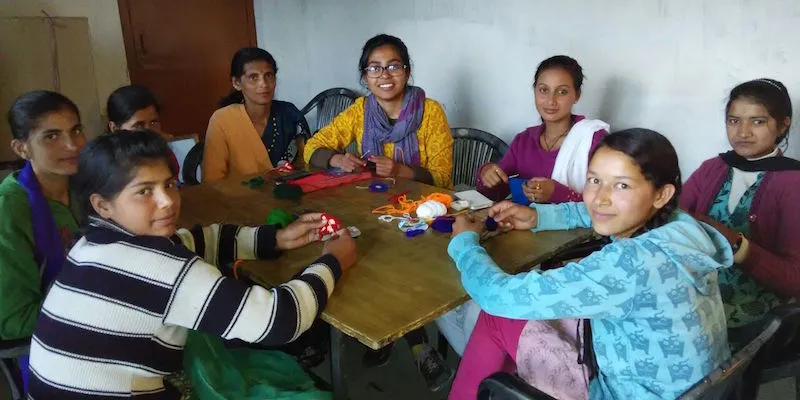
Post the fellowship, Pratibha continued to work and promote the creations of these village women. “When you join the fellowship, you come with preconceived ideas. But all of it changed when I decided to help the women here. I saw these ladies knitting everywhere - at weddings, at home, and even while they were in the jungle. That’s when I thought it’ll be a perfect opportunity for them to make an income with their skills. So, we started selling few products online,” she adds.
Another Fellow from the 2011 batch, Simran Grover, works in off-grid and underserved villages of Uttar Pradesh and Rajasthan with a team of people. He says, “The communities we work with typically lack basic amenities and infrastructure, and we try to provide them sustainable and affordable solutions, typically custom-designed for their needs. We try to use Decentralised Renewable Energy (DRE) as a tool to empower them by fostering livelihood activities, deliver better quality of education and facilitate better health services. ”
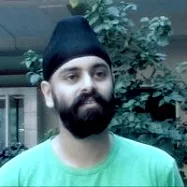
When asked about his experience as a Fellow, Grover says, “The programme was the starting point of my energy access journey. I was working directly with grassroots micro-entrepreneurs, engaging directly with people who underserved communities which could benefit from DRE solutions. This shaped my understanding of needs and aspirations, and has helped me in designing appropriate technical and business solutions over the years.
Seeking solutions
How the programme works is that each of the Fellows pick an issue of the rural community and ideate, innovate & implement workable solutions to address the same. These could range from technology, alternate energy, food security, education, and health awareness to self governance, alternate livelihood, traditional crafts, environmental protection, women empowerment, social entrepreneurship, and watershed development, among others.
Prakash Gupta, a Fellow from the 2014 -15 batch, was also trying to solve a recurring issue.
He says, “I was staying in a tribal village in Udaipur district of Rajasthan. During the first month of the fellowship, a few cases of under-five child mortalities were reported in the village. There were two common symptoms; vomiting and diarrhoea. The nearest hospital was 20 km away, and many of these children were dying without getting proper medical attention. I noticed that the number of deaths declined between September and December, which only indicated that the problem was seasonal.”
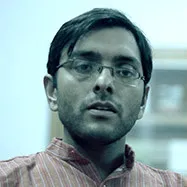
Gupta went in search of the root of the problem. He collaborated with IIT Gandhinagar to test the drinking water sources of the three panchayats in the area. It was found that the open wells and the government water sources connected to these wells were contaminated with E.Coli bacteria.
Finally, it was the combined effort of all the people that helped in bringing down the mortality rate. “Community participation was the most important component of the solution and it was locally available. Bleaching powder was made available at each anganwadi centre (4 in each panchayat), with a monthly meeting to report the progress. To promote hygiene, workshops were conducted in schools to promote hand-washing. Not only that, people also wrote mass applications to panchayats for repairing hand pumps and demanding new ones,” he adds.
Suriya Ansari, a 2015-16 Fellow, had a different kind of battle to wage, that against rampant corruption and lack of sanitation. Suriya says, “During community meetings, the villagers told me that the panchayat had denied them any pension, food ration or a job. In fact, they demanded money from the villagers to build toilets. So, I started working on a low cost solution for the villagers which could be used as a toilet, while not compromising on quality. The solution was a soak pit where the waste gets treated, and can be used as a fertiliser after 1.5 years.”
Suriya believes that technology cannot solve all our rural issues. “There is no doubt it can help us bridge certain gaps. But we need human-to-human interaction if we want to understand people and bring in change,” she adds.
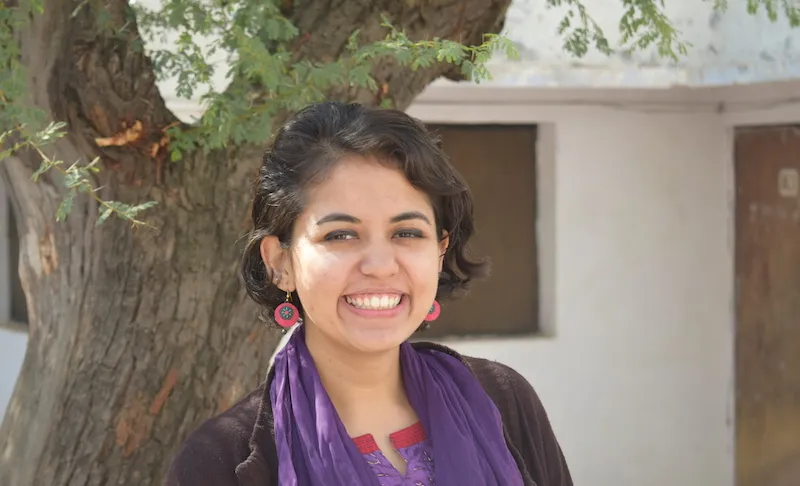
Chasing dreams
Another Fellow from the 2011-12, Shuvajit Payne, currently heads the education department at the Barefoot College in Tiloniya, Rajasthan and oversees the work of some schools in the state, along with 50-plus night schools across India. All these institutes focus on educating marginalised children, especially those who cannot access mainstream education.

Shuvajit says, “The Fellowship helped me realise that my core interest lies in education. I had found my dream. During the Fellowship year, I worked with a group of children in two villages to improve their communication skills, especially in the area of speaking functional English. I was successful to a moderate degree, as you can see in short video that I have documented.”
Looking back at his experience as a Fellow, he feels that working at the grassroots level is something that everyone should do. “I can easily say that my first year working with underprivileged communities not only had a notable impact on my personality. It also brought about a drastic change in my opinions on reservation, censorship, capitalism, free will, labour rights, Indian cultural heritage, education assessment systems, environment policies, economics of development – the list goes on!”
Suriya also believes that this experience has changed her. She tells us, “I have not changed anything for these people. They’ve seen thousands of volunteers like me before. More than anything else, I think, the community has changed my outlook on many things.”
Doing your bit
The SBI Youth For India initiative is a great opportunity for urban youth to come face to face with the ground realities of the rural sector. But can everyone work at the grassroots level? At least Shuvajit seems to think so. He says, “Everyone can work at the grassroots level. But doing it alone, and doing it right can be a difficult task. The fellowship just makes that experience easier.”
It makes sense for those more privileged to help those who aren’t, a simple mantra which Shriya Rangarajan, another Fellow from the 2014-15 batch, believes in. She says, “A majority of our country lives in rural areas which are still overlooked and still underperform when it comes to key development indicators. Unless we pay attention to this very large section of our population, the country cannot truly progress.”
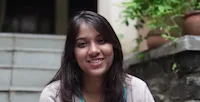
Shriya is presently managing a Digital Village project in Harisal, Maharashtra. The project is a collaborative effort between the government and various partner agencies across sectors such as technology, health, education, governance, agriculture and livelihoods. She believes that the programme helped her implement the project effectively in the tribal village. She says, “The SBI Youth For India Fellowship gave me the exposure and confidence to live and work in rural India, along with the backing needed to understand the developmental challenges and cultural ethos specific to these communities.”
Many of us are fortunate enough to have a roof over our heads and not worry about where our next meal is coming from. But not everyone has the same quality of life. By empowering the individuals in rural areas, we’ll only be improving lives, along with the country’s productivity.
You don’t need to have any experience in social work to become a change agent. Just the will to start that change is enough.
Remember, change begins with each one of us, and you too can help take India’s development story to those who need it most. Applications are now open for the 2017-18 batch of the SBI Youth For India Fellowship. The last date to register and submit the online application is June 9, 2017. Apply now!







